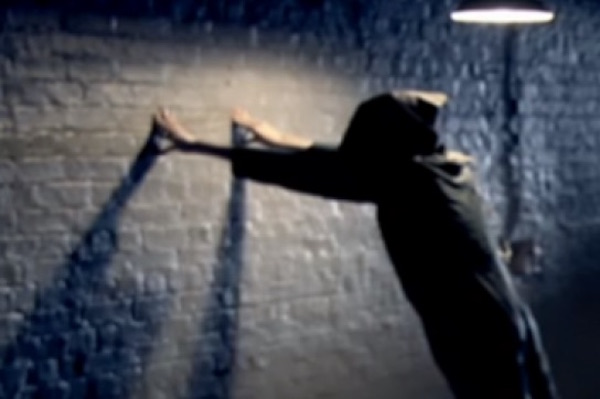
In a significant legal development, a High Court judge has admitted that a group of 14 Irish nationalist internees were tortured by British state forces in 1971.
Fourteen Catholic men from across the north have campaigned for recognition and justice after being subjected to disturbing torture techniques when they were interned without trial.
These included being hooded, made to stand in stress positions, forced to listen to loud static noise and being deprived of sleep, food and water.
In one heart-stopping terror strategy, the men were thrown from helicopters after being told they were hundreds of feet in the air, despite being just feet from the ground.
It is believed RUC (now PSNI) Special Branch members were taught the methods used by British soldiers, but received assurances of immunity from prosecution before carrying them out.
Documents continue to emerge through archive research and legal discovery which show that the abuse of internees was secretly sanctioned by the British authorities in the early 1970s, despite the knowledge that such actions are illegal.
A High Court judge has now quashed a decision by the PSNI police not to take further steps to identify and potentially prosecute those responsible for any criminal acts in the case of the ‘Hooded Men’.
Mr Justice Maguire said: “It seems likely to the court that if the events here at issue were to be replicated today the outcome would probably be that the European Court of Human Rights would accept the description of torture in respect of these events as accurate.”
In 1978 the European Court of Human Rights held that the techniques constituted inhuman and degrading treatment, but fell short of torture. In 2014 the case was referred back to the court with the support of the Dublin government.
The men’s lawyer, Darragh Mackin, described the judgment as “truly momentous in the Hooded Men’s campaign for justice”.
“For the first time, the court has directly held that the description of ‘torture’ is an accurate reflection of the treatment to which our clients were subject,” he said.
“For over 45 years, it has always been our clients’ case that they were the victims of torture.
“Today’s judgment exonerates their campaign.”
He added: “We look forward to the next step, and for the first time an investigation into the tortuous treatment to which they were subject.”
Jim McIlmurray, case co-ordinator for the Hooded Men, also said: “The fact that a British judge used [the word] torture in a British court is a major development for us.”
The men also said any PSNI involvement in the investigation of their case is now “unacceptable”.
Mr McIlmurray called for an independent inquiry into their treatment.
TRAUMA
He said “the men still have their demons” and one continues to be treated for post traumatic stress disorder more than 46 years later.
In a statement one of the group recalled collapsing and being punched in the stomach to revive him. He said he was against the wall for three days, subjected to kicks or beatings every time he dropped to the ground or fell asleep. The court was told he suffered hallucinations and prayed for death.
Another of the men was slammed into concrete posts and forced to go barefoot after being taken from his Newry home. Another was bitten by a soldier’s dog and had to drink from the animal’s dish. The group’s treatment during the internment has been described as a war crime.
Lawyers for his daughter have argued that the interrogation techniques “ruined” him. He was released to a psychiatric hospital, but his experience worsened a heart condition and led to his death.
“We would not in any shape or form accept the PSNI coming to us and stating they would be prepared to investigate the case,” Mr McIlmurray said.
“The PSNI still have members of the RUC in their ranks - how would they be impartial? What we want is a full independent and impartial enquiry.”
Mr McIlmurray said the men would prefer to have a panel of lay people to look at the case.
“The police are there to uphold the law and enforce the law and the police failed the citizens they are deemed to protect, they failed to carry out an investigation,” he said.
Sinn Fein’s Linda Dillon welcomed the High Court judgment.
“The decision of the PSNI to prematurely end the investigation into the torture and hideous physical and mental abuse of these men was unacceptable and completely wrong,” she said.
Ms Dillon also said the “British government and its agencies must release all information it holds about the torture, human rights abuses and state killings it carried out during the course of the conflict”.
Amnesty International programme director Patrick Corrigan said it is “utterly unacceptable that, in 46 years, the UK authorities have never once conducted a proper investigation into the abuse and that no-one - not the people who carried out the abuse, nor the people who authorised it - has ever been held accountable before the law.”
![[Irish Republican News]](https://republican-news.org/graphics/title_gifs/rn.gif)
![[Irish Republican News]](https://republican-news.org/graphics/title_gifs/harp.gif)

